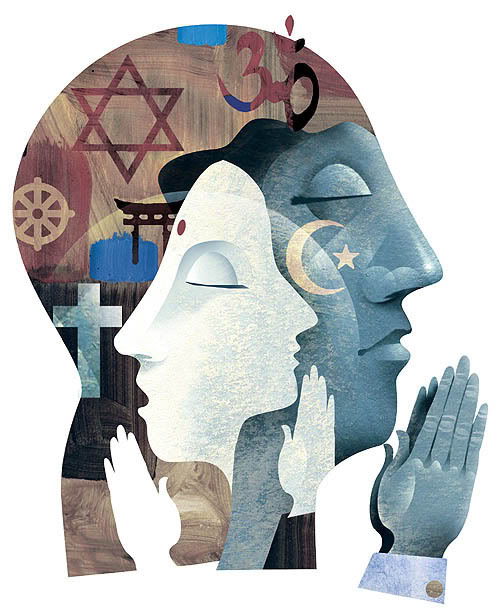I did not write this, this is a research paper done by Gina Miller an adult adoptee. But for the record I am also an adult adoptee and I believe we should be allowed to access anything and everything pertaining to how we came into being and our live in general.
http://http://www.facebook.com/notes/gina-miller/should-adult-adopt…
Research Paper
Gina Miller
Should Adult Adoptees Have Access to Their Own Records?
In 1965, Jeff Hancock was born in the city of Buffalo and had lived in Western New York State his entire life. Jeff was used to crossing the U.S./Canadian border for business and pleasure as a routine part of his life. In late 2006, the U.S. State Department announced plans to require all U.S. citizens to possess a U.S. Passport for the purpose of entering and returning from Canada. Jeff began to get documents in order, and requested his birth certificate from his mother as part of the application process for a United States Passport. His mother was very reluctant to give him his birth certificate, and only provided it after Jeff mentioned that he could purchase a replacement copy through his state’s Vital Records Department. This is how Jeff found out at age 41 that he was adopted.
At this point the term “birth certificate” needs to be defined. Adoptees actually have two birth certificates. The first certificate is the “Original Birth Certificate,” otherwise referred to as an “O.B.C.” The second is referred to as an “Amended Birth Certificate.” The differences between the two are fundamental. The O.B.C. contains the adoptee’s name at birth, the name of the birth mother and father, attending physicians, hospital, time and date of birth, and location. In contrast, the Amended Birth Certificate lists adoptive parents as birth parents, and is void of any information that reveals the adoptee’s pre-finalized adoption past.
Due to current passport application requirements that are only revealed on his O.B.C., Jeff will never travel outside of the United States of America again. He will never lay on a beach in Mexico, climb the Eiffel tower, or kiss the Blarney Stone in Ireland. How frightening to think that every person whose adoption is completed more than a year after their birth is to be denied their birthright to possess a passport? Jeff and other adoptees that were in foster care past their first birthday are living in betrayal through the hands of the only government they have ever known. Presently there are only eight states in the U.S.A. that are considered “Open Access States.” These states offer unlimited adoptee access to his or her OBC. Unless an adoptee lives in Tennessee, Rhode Island, Maine, New Hampshire, Kansas, Oregon, Alaska, or Alabama, access to their original identity is forbidden. Jeff’s story is only one example of how adoptees are discriminated against in the United States.
Adoption has existed from the time that Pharaoh’s daughter drew Moses from the waters of the Nile. Adoption was common in ancient Rome, where Patricians that did not have an heir that they deemed suitable would adopt someone to become their heir. Julius Caesar adopted Octavian to be his heir, and Octavian adopted Tiberius. Adoption has been around as long as human life has existed. From the beginning of time, there have been mothers who have been either unable or unwilling to parent their babies.
Betty Jean Lifton accounts in her book, “Journey of the Adopted Self” how in the time of the ancient Greek myths Oedipus was a victim of lies and secrecy in adoption. Oedipus was an adoptee who was unaware of his adoption. His father was warned by the Oracle at Delphi that he would grow up to kill his father and marry his mother. Oedipus grew up not knowing he had been hung by his pierced heels from a tree, and survived because a kindly shepherd cut him down and gave him to King Polybus and Queen Meriope of Corinth to develop as their own child. Like so many well meaning adoptive parents, the king and queen kept Oedipus’ past from him. When he eventually found out his history, he confronted his adoptive parents, who lied to him. Oedipus fled to another kingdom, and on the way he murdered an imperious stranger, then marrying the stranger’s widow. Had Oedipus been told the truth from the beginning, he would not have fled. The man he murdered was revealed to be his birth-father and the widow he married was indeed his birth-mother. The lies and secrecy surrounding his adoption led to his fulfillment of the oracle’s prophecy. (22)
However, adoption records were not always sealed. E. Wayne Carp in his book, “Family Matters, History of Secrecy and Disclosure in Adoption” tells of the history of adoption secrecy. From the time of World War I social workers were more concerned with keeping families together and kinship then they were with placing children for adoption. Many states began to require registers of births and deaths so that the whereabouts of these people could be tracked. Child placement agencies took every step when the children of unwilling or deceased parents were placed for adoption to conserve the information that may be of vital importance to the adoptee at one point later in his or her life.
An official of the Pennsylvania Bureau of Children stated, “It is better to write a thousand records that are not used than to fail to be able to supply a vital bit of family history when it is needed. By the beginning of World War II collecting family information by adoption agencies and social workers was considered ideal. Ora Pendleton, executive secretary of the Children’s Bureau of Philadelphia and vice chairman of the Philadelphia Chapter of the American Association of Social Workers, insisted that “information may be desired at some future time either by the adopting parents or by the child who has been adopted. These people should have access to whatever part of it they need.” While there may be many who never would ask for the information; Pendleton insisted “they are entitled to it if they do want it. The very knowledge that it can be made available to them if they want it is in itself a reassurance to them.”
As late as 1946 at the National Conference of Social Work Grace Louise Hubbard, supervisor at SCAA Child Placing and Adoption Committee, stressed the importance of “preserving the child’s true heritage through complete records.” Post World War II, agencies and child placement workers began to be concerned about the stigma of illegitimacy, and began looking for ways to prevent the adoptees from being discriminated against due to their illegitimate status at birth. It must be stressed that initially records were sealed to prevent outsiders from having access to whether or not an individual was illegitimate. There were separate cultural stigmas at the time, and mothers who were pregnant out of wedlock were highly discriminated against. Opposing the stigma birth-mothers faced was the stigma of infertility that married couples faced.
Children were perceived as being of bad blood, and were discriminated against because of the stigma of illegitimacy. Records were never intended to be blocked from access to any members of the Adoption Triad (Birth-Parents, Adoptive-Parents, and Adopted peoples). (37-101) Today this stigma no longer exists, but adoption records remain sealed in all but less than 10 states.
One reason for this is because adoption has become a multi-billion dollar industry. It is largely unregulated, and sealed records have allowed in the past for corrupt deeds to go undiscovered. Seymour Fenichel was an adoption attorney out of New York. He is one of many corrupt adoption facilitators, and one of the very few who was caught and imprisoned. Seymour Fenichel would encourage young mothers to give up their babies, and set up prospective adoptive parents with the possibility of an infant adoption. He would charge high rates, and the amended birth records were falsified with phony birth dates, locations, and names. He is only one of countless unscrupulous facilitators that saw a cash cow in providing babies to infertile couples.
William and Lila Young, Thomas Hicks, Dr. Katherine Cole, Bessie Bernard, and Georgia Tann all were unscrupulous providers of adoption services. Their practices charged outrageous fees to prospective adoptive parents. They charged huge, imaginary “fees” while relying on secrecy in the practice of sealed records to cover up their trade of human flesh. These baby-thieves would set up shop in one state, advertise in another, and send expectant mothers to yet a third state while finalizing the adoption in a final fourth state. Mirah Riben, author of Big Business in Babies: Adoption, the Child Commodities Market, is a biological mother of an infant lost to adoption. Riben states that, “Expectant mothers are isolated from their families, and a dependent bond is created with them by having prospective adopters pay their living and medical expenses, and virtually hold them hostage, blackmailing them to relinquish or pay back those expenses. The babies are then placed with a family after the family pays tens of thousands of dollars in fees.”
Closed records facilitate countless dastardly deeds in adoption by denying adoptees, birth parents, and adoptive parents any knowledge of the origin of these children. Alex Caldez, Jr, spokesman for the California Department of Social Services, says, “Essentially, [adoption facilitators] are required to have a business license, publish a list of their services, and [have a] $10,000.00 bond before they hang a shingle.” These untrained specialists can charge between six and ten thousand dollars simply to introduce prospective adoptive parents to a mother who is only considering adoption. If the match fails the facilitator can collect the fee again and introduce the couple to yet another expectant mother. Adoption is a gold mine for the unscrupulous that see only dollar signs when they speak to unfertile couples and unwed mothers.
Adoption has become an industry intent on fulfilling a childless couple’s wants, rather than a child’s needs. There is empirical proof that this secrecy in the 42 states that remained sealed is devastating to the adoptee. In the book “Being Adopted; The Lifelong Search for Self” Dr. Brodzinsky, Dr. Schechter, and Ms. Henig clearly show that individuals feel incomplete without knowing heritage and history. Discovery of their roots perpetuates mental health in that it gives the adoptee some feeling of control over his or her history, even if the search results are not good ones. (142)
“National Council for Adoption” is one adoption business that perpetuates several myths in their quest to keep adoption records secret. First is the myth that the birth parents want and were promised confidentiality. Linda Gale (a natural mother) states, “I was not promised confidentiality and did not want it either. Being concerned about me was the last thing on the agency’s mind…. I feel angry when they try to deny adoptees the truth about their own lives by blaming it on me and other mothers.”
Reasoning that the concerns of natural parents outweigh the needs of adult adoptees also ignores one basic and central tenet of adoption law: the best interest of the child (adoptee) controls. Adoption does not exist as a legal policy for the benefit of natural parents, but for the benefit of adoptees. There is no indication that when an adoptee becomes an adult his or her interest is suddenly usurped by perceived (and empirically false) desires of their natural parents.
A second myth perpetuated by the adoption industry is their claim that there will be more abortions should Original Birth Certificates be unsealed. Actual statistics reveal this claim to be entirely false. The Guttmacher Institute’s independent research indicates that in states with recently unrestricted access to Original Birth Certificates abortion rates have declined from 16 to 25 percent as compared with the nation as a whole. Both Kansas and Alaska have the two lowest abortion rates of all. This stands entrenched in complete defiance of the myths spewed by the NCFA when considering neither Kansas or Alaska have ever sealed away Original Birth Certificates in their states histories. Independent research has determined that birth mothers prefer to relinquish their child, whom they feel unable to care for, when the strong possibility exists for them to later reconnect. The thought of carrying a child to term and never seeing that child again is a terrifying thought for mothers.
A third myth is that open adoption will decrease the number of adoptions. The Guttmacher Institute’s research indicates the opposite. Alaska has the nation’s highest adoption rate followed by Kansas and the other open records states. The evidence appears that open access to Original Birth Certificates will increase adoption, rather than reduce it. The National Center for Court Statistics shows that the rates of adoption are 31.2 per 1,000 nationally. For the perpetually open states of Alaska and Kansas the adoption count per 1,000 live births are 53.3 in Alaska, and 48.8 in Kansas. Rates for surrounding states with sealed record laws are much lower. Colorado’s rate per 1000 live births was 26.0, Missouri is 27.5, Nebraska is 42.4, and Oklahoma is 27.6. The question has to be asked; why the secrecy? Could it be that the adoption industry has something to hide? As an adopted adult, along with countless other adoptees and birth parents who have fallen victim to the human trafficking perpetuated by these unscrupulous individuals and agencies, we scream “Yes!”
A fourth myth perpetuated by the multi-billion dollar adoption industry is that open records will break up adoptive families. This argument is completely absurd. Any parent who has given birth to a second child knows that there is always enough love to go around. Rather, secrecy and lies tend to break up the adoptive families. As in the example of Jeff Hancock’s discovery of a lifetime, and the lie he was forced to live for most of his adult life, the relationship he and his adoptive family have may never recover. Judy Sickler, an adoptive parent from Kansas City Missouri, states that she was never closer to her adopted children than when she searched and reunited them with their birth parents, and proudly displays photos of her children with both sets of parents. It is not debatable that honesty and trust go forth hand-in-hand.
Nancy Verrier is an adoptive parent who did not understand her adopted child’s angst. In her groundbreaking book, “The Primal Wound: Understanding the Adopted Child” Verrier researches the all-to-real trauma caused to children by abandonment of the biological mother at birth. Through her research Verrier discovered that adoptees could never feel completely whole without knowing why they were adopted, what their roots and heritage are, and having an opportunity to reunite with birth family.
Myths aside, a valid reason to open adoption records is for access to medical history. When an adoptee goes to the doctor, their answer to the questions about family history of diabetes, heart disease, cancer, etc. is always, “I don’t know.” Why should adoptees be denied access to their own medical history? It is a legal form of discrimination that should be eliminated. When a member of the general population needs a bone marrow transplant, or a kidney, they turn to a family member. Adoptees simply do not have that option in closed record states. One Kansas adoptee recounts the story of finding her medical history. “When I found my mother, the first thing she did was to tell me to be tested for pernicious anemia. I tested and was found positive. Pernicious anemia is a dreadful disease and is rarely tested for unless it is genetically indicated. It begins with a loss of the use of extremities, moves into numbness in the hands and legs, and eventually creates dementia and early death. It is controlled by a simple B-12 shot that is administered for pennies a day. The stakes for living are high risk across the adoptee community.
Had I been born 12 miles to the east, I would be a native of Missouri. I never would have found out this important medical information about my self. My career and my life would have been over simply because I am an adoptee.” In Missouri, and approximately 40 other states, judges simply refuse granting of adoptee’s requests. Legally adoptees have the right to petition for the court release of their files. Nearly 100% of the time judge’s reply will state that the adoptee fails to show “good cause.” Apparently medical history is not sufficient. Courts state privacy issues and confidentiality of the mothers as their primary concern. However, most mothers would be horrified to learn that their offspring were ill, dying, or unable to obtain their own history.
Adam Pertman, executive director of the Evan. B. Donaldson Adoption Institute states that adoptive parents are inadequately prepared to care for their adopted children, not knowing what types of diseases to prepare for, or to take preventative action against. And ongoing contact is indicated as necessary, as the natural parent ages and health issues such as diabetes, heart disease and cancer could develop. The children that they give birth to, and keep will have this information. Why is the adoptee any less entitled to the same information?
The veil of secrecy has shrouded adoption since the World War II era. However, research indicates that this is simply absurd. In today’s society, to continue to perpetuate the lies and secrecy that a closed adoption system advocates, protects no one yet endangers many. The statistics shown above regarding abortion rates and adoption rates in open records states vs. closed record states bear out internationally.
Adam Pertman states in his book, “Adoption Nation” that “Sealed birth certificates are a destructive anachronism. They didn’t exist before the middle of the last century… and one day they will be viewed as a misguided historical aberration.” Unless adoptees had the good fortune to be born and adopted in a state with open records, they are looking at years of frustration, endless hours of searching, huge costs in legal fees to open court records, possible expenses with investigators, travel, fees for Confidential Intermediaries, as well as DNA testing, which the general non-adopted public does not have to pay. The 14th Amendment of the United States Constitution clearly states that “No State shall make or enforce any law which shall abridge the privileges or immunities of citizens of the United States; nor shall any State deprive any person of life, liberty, or property, without due process of law; nor deny to any person within its jurisdiction the equal protection of the law.” Adoptees seem to be left out of the protection of the 14th amendment, being denied their own original birth certificates and adoption records, being discriminated against, and in the eyes of the law, perpetually children, who need to be protected from their own acts. Legislation refers to adoptees as adopted children, regardless of their age.
No other group of people is singled out and told who they can and can not have contact with or a relationship with. Adoptees are the only group of citizens in the United States denied their own information because of what they “might do.” Most birth-mothers are not opposed to the idea of contact and reunion, in fact, many welcome it. In the event that the biological parent does not want contact, a simple statement or letter to the adoptee can convey that feeling without the state being involved. Adopted individuals are adults with the right to make decisions about their own lives, and to know their own heritage, medical information, and history. As author Alex Haley states, “In all of us there is a hunger, marrow-deep, to know our heritage- to know who we are and where we have come from. Without this enriching knowledge, there is a hollow yearning. No matter what our attainments in life, there is still a vacuum, emptiness, and the most disquieting loneliness.”
The quest for identity is a common one, yet adoptees are met with slammed doors, stamps of “Denied” on their requests for records, and mountains of bureaucratic red tape that exclaims, “You are not worthy to have your own information.” Robert Harrington Wilson McCullough, a Missouri adoptee, summarizes the dilemma with the following words, “Until I hold my original birth certificate in my hand, I will never know who I am, only who I am not.”
Works Cited
Brodinsky, David, PhD, Schechter, Marshall,M.D., and Henig, Robin. Being Adopted.
Random House 1992
Carp, E. Wayne. Family Matters. Secrecy and Disclosure in the History of Adoption.
Harvard University Press
Gale, Linda. Personal interview. 16 September, 2011
Hancock, Jeff. Personal interview. 8 October, 2011
Kaiser Family State Health Facts.org. Hall), Mike. Kaiser State Health Facts. Web. 10
Oct. 2011. .
Lifton, Betty Jean. Lost and Found .University of Michigan Press 1979
Journey of the Adopted Self . New York: Basic, 1994
McCormack, Patty. “ISTG – Black & Gray Market Babies.” Immigrant Ships Transcribers
Guild. Web. 24 Oct. 2011.
.
Pertman, Adam. Adoption Nation; How the adoption Revolution is Transforming Our
Families and America. Harvard Common Press, 2011
Verrier, Nancy. The Primal Wound. Understanding the Adopted Child. Gateway Press, 1993









